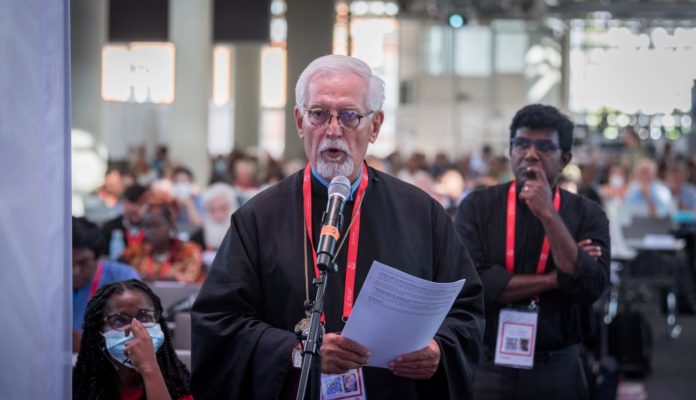KARLSRUHE, Germany — In stirring words delivered before the 11th Assembly of the World Council of Churches (WCC), which took place August 31 to September 8, Archbishop Vicken Aykazian, the Eastern Diocese’s Legate and Ecumenical Director, spoke out passionately about the ongoing aggressions committed against Artsakh and the Armenian people.
He said, “Why do we forget what is happening still in Armenia?” he said. “Every other week, they occupy one or two villages. What happened to the POWs — 110 to 118 prisoners of war in the last two years? There is no government in the world that is pushing the Turkish and Azeri governments to free those young people. Where are we when 5,000 young people were killed?”
Aykazian offered his remarks during the inaugural plenary session of September 1. He spoke in the broader context of the need for the WCC to take strong moral stances against injustice done to people anywhere in the world — and to hold government bodies accountable when they fail to defend the innocent against aggression and violence.
“This organization must be a moral organization,” he urged, “and care for every nation, every minority, every people that are suffering.”
Some 5,000 participants, representing 351 Christian churches and denominations across the globe, were present at the WCC gathering in Karlsruhe, Germany — the largest, most comprehensive assemblage of the ecumenical organization’s membership.
While the World Council of Churches holds administrative meetings and consultations at frequent intervals, the WCC Assembly convenes only once every seven years. This latest gathering was postponed an additional two years from its scheduled meeting time, due to the worldwide pandemic. The 2022 Assembly went forward from August 31 to September 8, under the theme “Christ’s Love Moves the World to Reconciliation and Unity” — a motto inspired by St. Paul’s exhortations in chapter 5 of his Second Letter to the Corinthians.










